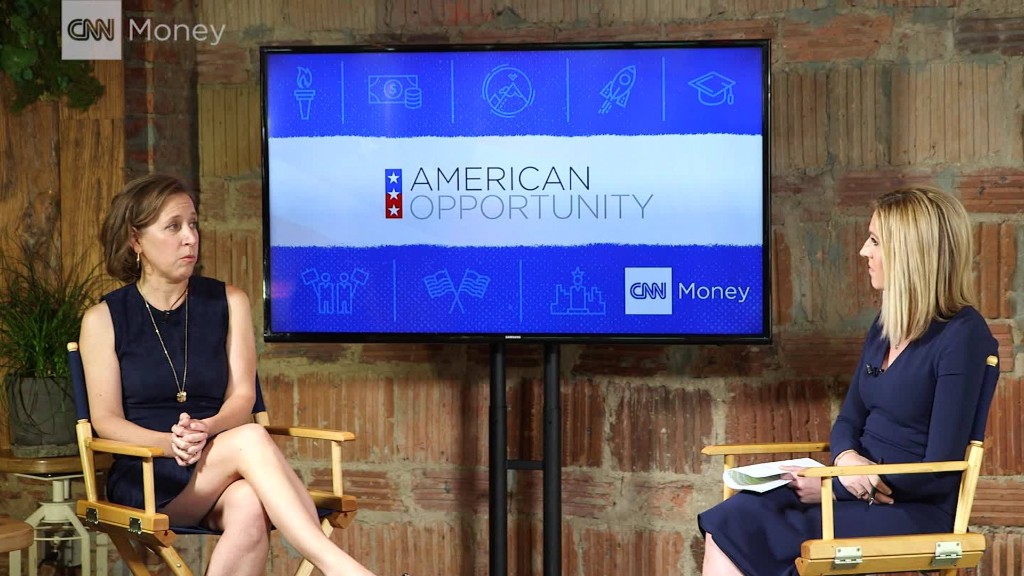
"Mansplaining." "Hepeating." "Manterrupting."
These are the words we've come up with to explain the sexist phenomena we see in the workplace. Colleagues talking over women. Colleagues talking down to women. Male bosses repeating female employee's comments (to wider recognition).
These seemingly tiny, everyday occurrences ("Feminist Fight Club" author Jessica Bennett calls them "subtle sexism") may not appear as urgent as a massive pay gap or Uber-level workplace harassment. But they can compound the larger problems women face in the office.
How sexism in tech is affecting the female pipeline
"It is really easy to individually dismiss them because they do seem small, but the idea is that these are 'death by a thousand small cuts,'" Bennett says. "There are large problems we need to deal with as well, but if you want to have a more equal workplace, we need to attack this from both the macro and the micro level."
So maybe you're being talked over constantly or mansplained to death -- but you don't know how to raise your voice and fight back.
Below, some tips on how to get started.
Recognize it's not a 'you' problem
Maybe you think you're the only one interrupted in meetings, so it feels easier to keep your head down. Take a look around the room — you're likely not alone in noticing the problem.
When Bridget Todd, co-host of the "Stuff Mom Never Told You" Podcast, got her first "grown-up" job, she struggled to find her voice on issues like this.
"It was more complicated being a black woman because I always thought [if I] complain about this or that, all black women are going to be seen as complainers and they won't hire another black woman,'" she says. "So I was always very anxious about that, but as I've gone further in my career, I just wish I had spoken up more."
How a 'confidence coach' taught me to be more confident
As Todd points out, if you're seeing the issue -- it's harder for women to get their voices heard in brainstorm sessions, for instance -- your female colleagues are probably taking note of similar problems, too.
Amplify
One strategy, straight from women working in the White House: amplify.
Women in the Obama administration made headlines last year when they shared their "amplification strategy" to help women get heard in meetings. If a woman vocalized an idea and it went unnoticed, other women would echo it until it was recognized.
"You want to be getting credit for what you bring to the table," Todd says. "Like, 'Oh, that's just like what Julia was saying,' or 'Just to be clear, it was Julia's idea.'"
Find a wing(wo)man
Bennett suggests finding a colleague who will assist you in fighting these things. This person could echo you in meetings or boost you up to colleagues. And it doesn't have to be a woman -- in many cases, men are also willing to step up when someone interrupts or steps over their female colleagues.
"If it's coming from someone else saying, 'Hey! Wait, I want to hear what Jess had to say,' then you get to say your piece and that person looks like a supportive colleague, and no one can be accused of being too sensitive," Bennett says.
Get more women in the room
Bennett says research for her book, "Feminist Fight Club," showed that in meetings where women make up at least a third of the room, their voices are more likely to be heard -- and most importantly, remembered.
"Conceivably a lot of this stuff is happening in group meetings or a bunch of group dynamics in an office environment, so one thing you can do to have your voice heard the first time: you can have more women in the room," Bennett says.
Todd says in her experiences in the workplace, having more women on staff is key to mustering resources that end the bad behavior.
"In organizations that I've worked at where it's heavily women, I haven't seen these problems persist," she says. "So I think one way to deal with it is to hire more women -- not just women at the table, but decision-makers."
